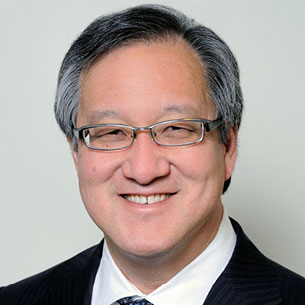The crab is sometimes used to represent cancer, perhaps because of the tenacity with which a crab grabs hold of its prey. From the hairy crab of Shanghai to the king crab of Alaska, crabs have evolved into hundreds of subspecies across the world.
I mention this to draw a parallel to the field of medical oncology where different countries have different approaches to the training of oncologists. Still a young specialty in the United States, medical oncologists oversee chemotherapy for the vast majority of patients with cancer. In other countries, surgeons have become the predominant cancer physician who administers medical management of cancer. Another approach is for a medical subspecialist to treat those cancers that fall into the organ system that they have expertise in; for example, a gastroenterologist would administer chemotherapy for gastric or colon cancer.
Recently, Doug Pyle, Senior Director of the ASCO International Affairs department, and I traveled to South America where we visited oncologists and administrators in hospitals and clinics and met with government health officials in Argentina, Uruguay, and Brazil. These are three countries where medical oncology is firmly established as its own specialty.
However, the medical oncology training programs have started to evolve differently. In Argentina, university-based programs provide a five-year clinical training exposure comprised of two years of internal medicine and three years of medical oncology. Yet, alongside of this, certificate programs in oncology allow one to pay tuition for a two-year primarily classroom-based experience after which one can be employed in Argentina or elsewhere in South America if allowed by that country, as a medical oncologist. In Uruguay, there is a five-year clinical training program with a national examination given each year of training. In São Paulo, Brazil, high-quality fellowship programs at cancer centers such as Instituto do Câncer do Estado de São Paulo (ICESP) require their fellows to take the ASCO In-Training exam, providing a direct benchmark among the trainees.
Well-trained medical oncologists with a broad and deep knowledge base are the workforce standard we should strive for. Both the oncologist and the training program should meet national standards to assure the quality level designated by each country for itself. The ESMO-ASCO Recommendations for a Global Curriculum in Medical Oncology provide guidance on educational standards for oncology training. At the same time, the immediate need to provide adequate access to care for large cancer populations is a real one. In Hospital Pérola Byington, a São Paulo municipal women’s health center, gynecologists and surgeons are trained in certain aspects of breast cancer care. A mastologist may be trained in the diagnostic evaluation of a breast lump and skilled in performing ultrasound-guided biopsies. Another may be trained in adjuvant chemotherapy administration, and a third mastologist receives training in the use of chemotherapy regimens in metastatic disease settings.
My parents came to the United States from China for a college education and post-graduate training after World War II; so, the requests that ASCO facilitate oncology-training opportunities that I heard while visiting in South America fell on sympathetic ears. There are cancer centers in the United States, such as Fred Hutchinson and MD Anderson, where international fellows can receive training. However, barriers such as obtaining visas and finding financial support are real and limit the number of such opportunities for fellows at U.S. institutions. Alternatively, a complementary and more scalable answer is improving the training standards in country to meet established international standards of education and testing such as the Global Curriculum mentioned earlier and the ASCO In-Training exam.
Over the last decade, the majority of U.S. fellowship training programs have participated in the ASCO In-Training exam. This program allows fellows to test their competencies yearly and understand what areas of their education require more attention. Training program directors are able to identify where systematic improvements should be directed, and program directors may attend an annual workshop where they can network with each other.
In our relentless quest to advance cancer education, research, and patient care, ASCO has been driven to develop very robust products and services for the U.S. market. By engaging our international membership, we can understand what similar needs exist in the other 100-plus countries that ASCO members hail from and, with a collaborative spirit, find opportunities to help each other, exchanging ideas and accelerating progress toward better health globally.



Recent posts